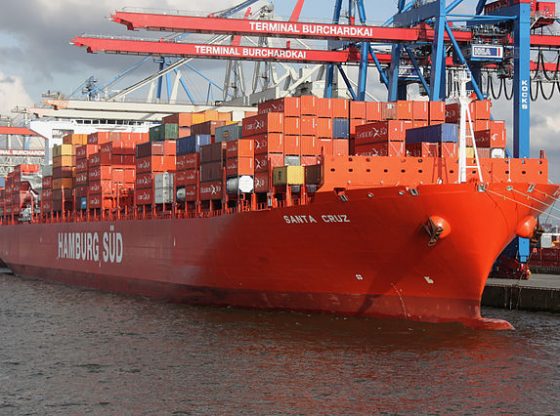The White House announced Wednesday that it is aiming to decarbonize a key sector of the American economy and its supply chains as part of its massive climate agenda.
If the administration’s goal for the freight sector is realized, the trucks, ships, trains and airplanes that move about $49 billion of goods every day and their supporting infrastructure would need to transition to zero-emissions technology in the coming decades, according to the White House. The administration did not attach a target date for its climate goal for the crucial freight sector, which is closely connected to the supply chains of nearly all other industries, but the White House states that the vision is consistent with its wider push to have the U.S. transportation sector reach “net-zero” carbon emissions by 2050.
The White House also committed Wednesday to developing a whole-of-government “national zero-emissions freight strategy.” The strategy “will prioritize actions to address air pollution hot spots and tackle the climate crisis, mobilizing a broad range of government resources, and reflect public participation and meaningful community engagement, furthering the President’s commitment to environmental justice for all,” according to the press release.
Biden Looks To Turbocharge EPA Office Responsible For Aggressive Green Regulations https://t.co/zoucqj38zf
— Daily Caller (@DailyCaller) March 12, 2024
The administration also announced that it is opening up $1 billion from the Inflation Reduction Act, President Joe Biden’s signature climate bill, for subnational governments to apply for and use to replace certain heavy-duty vehicles, like delivery trucks and school buses, with zero-emissions models.
The transportation sector is the leading source of emissions in the U.S., according to the White House, and the Biden administration already has heavily regulated and subsidized automobile markets in an effort to bring down emissions from passenger and heavy-duty vehicles. Environmental Protection Agency (EPA) regulations for light-, medium- and heavy-duty vehicles will effectively mandate sharp increases in the number of electric models sold in the coming years.
While the administration’s timetable is unclear, early indications from Europe and California — a state pushing zero-emissions rules for trucks and locomotives that are more aggressive than those of the federal government — are that much of the technology needed to quickly shift commercial transportation away from fossil fuels is not ready for prime time. Decarbonizing ships and airplanes that transport freight in the near future may also prove to be challenging due to current technological or ecological issues.
Truckers and rail industry stakeholders have previously explained to the DCNF that California’s push to have truck and locomotive operation go green before the needed technology has fully developed will likely increase costs of doing business that will then be passed on to consumers.
The White House did not respond immediately to a request for comment.












